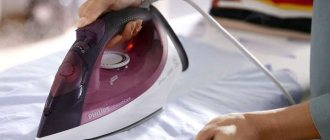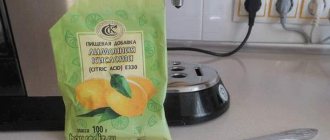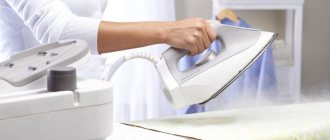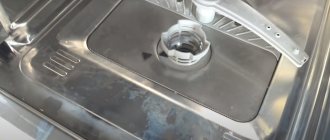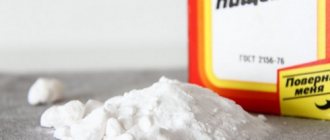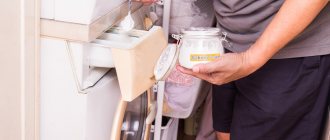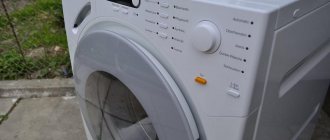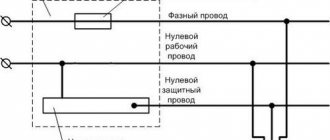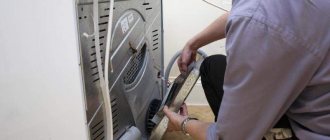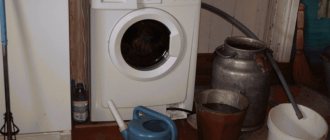How to clean a washing machine with citric acid is a common question, because many people care about their health and therefore want to clean the device without using aggressive chemicals. Today we will look at the features of using this tool, the main advantages and disadvantages.
"Limonka" can be used to clean the drum or heater
When and why is cleaning with citric acid necessary?
Some users of a washing machine are convinced that to care for the device, they only need to use it periodically - after all, if you think about it, the walls of the drum regularly come into contact with water and washing powder. Where can pollution come from? However, this is a misconception, and lack of constant care leads to rapid wear and tear of the device.
First of all, regular washing of the washing machine is required in order to prevent the accumulation of scale. It appears due to the fact that tap water contains a large amount of minerals. At the same time, the “weak” point of any washing machine is the heating element (heating element) - as a result of the appearance of plaque on this part, it either completely stops functioning or works intermittently.
Over time, the heater becomes covered with mineral deposits
Due to the accumulation of a dense layer of plaque, more energy is required to heat the water, therefore, the washing machine ceases to be economical. However, even this is not the saddest consequence of the problem: as a result of scale deposits, the heating element completely ceases to perform its functions, so it will have to be replaced. You will have to spend a lot of money to replace this part.
There are other reasons why regular cleaning of a household appliance is required. So, after washing some items with a fleecy structure, lint particles accumulate on the surface of the drum and the heating element. In addition, lint often settles in the hoses of the washing machine, which prevents the liquid from draining (increasing the washing time).
Lint may remain inside the structure after washing.
It is also required because in addition to minerals, the system contains various microorganisms that disappear only during heat treatment. If you regularly wash with cold or warm water, they will accumulate on the surface in large quantities. As a result, mold forms and an unpleasant, musty odor can be felt from the drum, so careful disinfection is required.
Prices for heating elements for a washing machine
Heating element for washing machine
Care Tips
In addition to caring for the drum and heating element, it is necessary to properly care for other parts and components of the washing machine. This will help maintain its beautiful appearance for a long time and increase its service life.
It is necessary to ensure that the machine is correctly installed on a flat, horizontal surface, and is also connected to water supply and electricity. Accordingly, hoses and electrical cables must not be damaged or kinked. Water or any other liquid should not drip onto the surface of the machine.
If any stains appear on the outside of the case, they must be removed with a sponge and detergent. Dishwashing gel is quite suitable for these purposes. Particular attention should be paid to the door, since the main accumulation of dirt occurs in the cracks around it. For more effective cleaning, you can use an old toothbrush.
After this, you can begin to clean the powder compartment, which often retains residual detergent and rinse aid. For convenience, it would be better to remove the compartment from the car, provided that this is provided for by its design.
Advantages and disadvantages of the product
The properties of citric acid allow it to break down mineral deposits. However, this product was not originally intended for cleaning household appliances, so it has both advantages and disadvantages.
"Limonka" is an effective remedy against dirt and scale
Citric acid powder has been used for many years in a row to clean washing machines with a heating element, due to the following qualities:
- Low cost. This budget product can be purchased in large quantities at almost any grocery store. In addition, you won’t need to spend too much “lemon” at a time.
- Ease of use. Anyone can use the powder; such cleaning does not require special knowledge or experience.
- Efficiency. Lemon powder dissolves quickly and is then washed off, leaving no traces on the internal elements of the device. However, even if the grains remain in the drum, they certainly cannot damage the clothes during washing.
- Safety. Citric acid does not belong to the category of caustic components and is absolutely safe and environmentally friendly, so it does not damage the heating element and the internal filling of the washing machine. However, the product is safe for materials only if the rules of use are followed (we will discuss them below).
- Eliminate odors. When using acidic powder, you can even get rid of old odors in the drum.
Citric acid does not harm the environment when released into the water supply.
The negative aspects of using powder include the following:
- If the product is used in too large quantities, the possibility of damage to the rubber seals and the thin metal of the heating element cannot be ruled out. In addition, rubber hoses may also be damaged. Using boiling water during cleaning will complicate the situation.
- Not in all cases, lemon juice can cope with a thick layer of scale, so you will still have to use chemicals.
- After the procedure, things may acquire a specific citrus smell, which not everyone will find pleasant.
Powder can destroy the integrity of rubber
Find out how to remove the rubber band from the drum of a washing machine with your own hands in a special article on our portal.
Cleaning the washing machine with citric acid
Only with proper cleaning using citric acid can you quickly deal with scale and plaque. There are several basic recommendations that will make cleaning effective:
- optimal dosage;
- a certain duration of cleaning;
- water temperature.
How to clean an elastic band with acid in a washing machine
In addition, you will need to take into account other nuances, which we will consider in more detail.
How much citric acid will be needed?
The exact amount of product will depend on the complexity of the dirt and the volume of the washing machine. So, if the volume (load) of the device is about five kilograms, then you will need two packs of citric acid ( 25 grams each ).
On average, a packet of citric acid costs about 25 rubles
If you bought lemon juice in a large jar, then on average you will need 5 tablespoons . If the washing machine is designed for six to seven kilograms of load, you will need four packs of lemon powder.
Cleaning a washing machine with citric acid if there is scale on the heating element: step-by-step instructions
| Step 1. First, you need to inspect the device from the inside and remove any small items that may have remained after washing (buttons, snaps, rhinestones, etc.). |
|
| Step 2. Now you need to pour citric acid into the washing machine. |
|
| Step 3. Now you need to turn on the device and start the rinse or rinse and spin mode - it is in these modes that the product actively removes any contaminants and is discharged. The optimal water temperature is 58-60 degrees, but if there is too much contaminant inside, you will need to set the maximum temperature to about 87-90 degrees. In the second case, it is recommended to run the program for a minimum time. |
|
| Step 4. Now you need to close the drum of the device, but it should not contain any things. |
|
| Step 5: Once the process is complete, open the drum and inspect it carefully. Now, using a sponge or rag, you should remove the remaining “lemon” along with scale deposits. |
|
| Step 6. Upon completion of the procedure, you must leave the drum open so that the device can thoroughly dry from the inside. |
|
Note! This procedure is recommended to be carried out at least three times in 12 months. Housewives who use the device daily will need to repeat the procedure after 28 washes. In addition, the frequency of cleaning is increased if you have to periodically wash woolen items, because they quickly clog the drum with lint.
Video - Cleaning the heater with lemon
Cleaning a dirty drum: step-by-step instructions
The cleaning method that we discussed above is more suitable for cases where scale accumulates on the surface of the heating element - citric acid quickly removes plaque by penetrating into the internal elements. If there are contaminants with a strong odor on the drum, the cleaning method will be different.
| Step 1. “Lemon” in the required quantity should be poured into the drum. |
|
| Step 2. Now you should turn on the machine and start washing at a temperature of about 70-80 degrees. Then, after 10 minutes, you need to press the “stop” or “pause” button and wait about an hour - this will allow the citric acid to react with the deposits. If the button is missing, then the device is unplugged from the outlet. If this is not done, then the lemon will not have time to dissolve the thick layer of plaque. The total washing time without a pause will be about 30 minutes. |
|
| Step 3. When the main washing time is up, you need to start rinsing again for no more than 7-10 minutes. |
|
Note! If the results of the procedure in both cases do not improve the condition of the washing machine, then you are probably dealing with too thick a layer of dirt. It is recommended to repeat any of the above procedures again. If the heating element is still covered with scale, it can be removed and boiled.
other methods
There are a couple of simple tricks to help you properly care for your washer using available tools.
Soda
It often saves housewives in everyday life by cleaning various surfaces: from tiles to steel utensils. It can also help in the fight against scale and smell from the washing machine. In this case, a solution of soda and water is prepared in equal proportions, then the mixture is applied to all elements of the machine (attention is paid to the drum and the powder compartment). Next, the soda is removed, and the machine starts in the idle washing mode with additional rinsing.
Vinegar
Vinegar is known for its cleaning properties: it removes scale, unwanted odors and adds shine. However, the specific smell of acid requires additional efforts to eliminate it.
150 g of table vinegar is poured into the powder compartment or directly into the drum, and then the washing mode starts. In the middle of the cycle, it is better to pause the equipment without draining the water and wait a little for the greatest effect. After completing the preventative cleaning, the machine is ventilated.
As an alternative, use an aqueous solution in which citric acid and vinegar are diluted (50 g of lemon juice and half a faceted glass of vinegar). The cleaning steps are identical.
Special means
Manufacturers of household chemicals offer a lot of professional products for removing scale from washing machines. Among them are tablet, powder and liquid formulations of various price niches, produced in Russia and abroad.
Of the most common:
- Chistin. Budget powder of the Russian brand, which allows you to fight plaque and scale on the heating element;
- Tiret – concentrated liquid cleaner for washing machines;
- Schumanit from the Israeli brand Bagi shows good results. Fights deposits of minerals and salts on the internal parts of the machine, is economical in consumption;
- Tablet Cleaner from Frau Schmidt. Along with its effectiveness, the ease of use of the tablet form of the product is noted. Among the positive qualities of the Cleaner is a pleasant citrus aroma after use.
How to check equipment for scale?
Cleaning the device with acidic powder should be treated as a serious procedure. This means that it is not recommended to carry it out unnecessarily, so the housewife’s primary task is to check the device for plaque and scale:
- You need to take a flashlight and look into the drum. First of all, you need to check its lower part, because in most models the heating element is located there. In addition, you should inspect the entire drum, turning it by hand - usually traces of plaque and scale are immediately visible.
- In most cases, scale appears due to frequent washing at high temperatures. Therefore, if you regularly wash at a temperature of 80-85 degrees, most likely the device needs cleaning.
- Scale is collected from hard tap water, and its characteristics can be checked either by special tests or by settling. In addition, if scale accumulates on a kettle and other similar appliances, then there is it in the washing machine too.
Before starting the cleaning procedure, you should check the drum for mineral deposits.
Scale can also be recognized by the following signs:
- fabrics have a musty smell after washing;
- the device started to be too noisy;
- on light-colored clothing, spots of gray and yellow are clearly visible;
- even when replacing the gel or powder, poor quality of laundry is observed;
- the water heats up slightly.
If there are several such problems, you will need to urgently clean the device with citric acid, otherwise it will no longer be possible to save it.
Prices for various types of cleaners for washing machines Topperr
Topperr washing machine cleaners
How to know when it's time to clean your machine
During operation, deposits may accumulate on different parts of the machine:
- Fungus and mold on the rubber seal;
- Scale and deposits on the heating element, drum surface and other metal parts due to high temperatures and too hard water;
- Remains of washing powder, rinse aids and other products that are not washed out during washing;
- Foreign objects and dirt inside the drain pump filter;
- Rust and sand in the inlet hose.
These contaminants must be removed in a timely manner, as they affect the quality of the wash. This can be done without special means, at home using ordinary citric acid.
The vast majority of modern powders contain components that soften water and prevent the formation of plaque. Scale on the heating element appears mainly at high washing temperatures, which we use quite rarely. Therefore, if you use high-quality powder and rarely wash at high temperatures, cleaning your washing machine every 4-6 months will be enough. If tap water in your region is considered very hard, you should carry out this procedure every 2-3 months.
Recommendations for using citric acid
In order to achieve maximum efficiency from this folk remedy and avoid damage to the washing machine, you need to listen to the following tips:
- It is recommended to use only citric acid in powder form, but not natural juice. Of course, it is safe for the surface, but it will definitely not be able to cope with scale and plaque due to the low acid concentration.
- According to the recommendations of the manufacturer of most models of washing machines, you should wash your clothes at a temperature of no more than 60 degrees , otherwise plaque will constantly accumulate.
Manufacturer's temperature recommendations should not be ignored.
- When trying to clean the device, you should not pour too much powder into the drum, because in high concentrations it poses a danger to the internal elements of the washing machine. This will negatively affect its functioning.
- When reading for a long time, you should not heat the water too much - the interaction of the “lemon” with boiling water for a long time can cause damage to the device.
- To avoid having to use acid to clean the heater and drum, it is necessary to prevent scale in a timely manner. For this purpose, manufacturers produce special powders and tablets that significantly soften water. Some washing powders already contain similar components. For additional prevention, it is recommended to install special filters on the water supply that prevent salts from entering the system.
Installing a water filter will solve the problem of scale.
- When cleaning the drum with citric acid, do not load clothes into it. Of course, there are some folk recipes that allow the use of lemon juice as a bleach. However, a high concentration of this product only destroys the fibers, so you risk permanently ruining your favorite item.
- Be near the washing machine during this procedure because lemon powder will often break up large chunks of deposits that can clog the drain. In case of such a problem, all that remains is to disconnect the pipe and clean it yourself with a cable.
- In order to avoid lint particles sticking to the heating device, you should not wash woolen or very old items in the drum. If there are a lot of such things, wash them in a special textile bag.
Video – Preventative cleaning of the washing machine
Tips and precautions
To ensure that citric acid against scale in a washing machine is as effective as possible and does not negatively affect the functioning of the appliance, several precautions and rules should be observed:
- You should not replace powdered citric acid with lemon juice, as it will not be concentrated enough and will not cope with plaque.
- Try not to wash at temperatures above 65-70 degrees, as it is in these conditions that limescale deposits usually form.
- Do not exceed the permitted maximum quantities of citric acid powder: high concentrations may damage some parts of the device. The product can have an aggressive effect and even partially corrode plastic or rubber, which will certainly affect the operation of the washing machine.
- You should not increase the temperature either, because intense heating, especially long-term (and for cleaning it is recommended to choose long-term washing) will increase the effect of the acid and its possible negative impact.
- Remember that the most effective method of combating scale is timely and comprehensive prevention of its formation. To prevent the occurrence of plaque, use specialized products added during washing that destroy metal salts and soften water. There are also some washing powders with the addition of components that reduce the risk of scale formation. In addition, a high-quality modern filter will reduce hardness, the cartridge of which will retain magnesium and calcium salts and prevent them from getting into household appliances.
- Do not fill the drum with laundry. Although citric acid can be used to remove stains as a folk remedy, in large volumes required to remove plaque, it can destroy fabric fibers and change their structure, that is, simply ruin things.
- When cleaning, the scale is destroyed, and pieces of it can fall off and fall into the drain, which will be accompanied by a hum. If the noise increases, or the unit begins to perform poorly or vibrate, a large element may be stuck in the hole and blocking the flow of water. In this case, stop the wash and remove the blockage: disconnect the drain hose and remove the piece of plaque stuck in it.
- To avoid contamination of the heating element and other parts with clothing lint, it is not advisable to wash old and dilapidated items, especially woolen ones or those made from other materials with lint or fleece.
Video: cleaning a washing machine with citric acid.
Other methods for cleaning a washing machine from plaque and scale
In addition to lemon juice, there are many other means that cope with such contaminants. They can be used separately or in combination with citric acid.
The advantage of ready-made (store-bought) products is that manufacturers specially developed them for cleaning washing machines. This means that they will definitely not be able to harm the device and its elements.
Table No. 1. Specialized means.
| Name | Short description |
| Doctor TEN | This is a powdery product that is intended to break down scale on any household appliances. Including a dishwasher, washing machine, kettle. |
| Antikalk | This is a universal-use gel that quickly removes plaque. |
| Topper | This product is actively recommended by many device manufacturers, because it is capable of removing even complex stains and a dense layer of scale. |
| DR. Beckmann | This product is often used to prevent scale and plaque. In addition, it effectively copes with unpleasant odors and bacteria. However, in the presence of heavy pollution it will be ineffective. |
| Magic Power | This is one of the most effective means of removing scale and any other contaminants. It is produced specifically for washing machines. Allows you to remove plaque from the heater. |
| Entkalker | Available in powder form, it helps get rid of even stubborn deposits. This product is economical because several grams of powder are required for one application. |
| Filtero | This product is also produced to remove old traces of scale. It should be used twice every 12 months. |
Limescale cleaning products
Note! Another effective anti-scale agent is Calgon. However, the components of the composition do not allow the breakdown of existing plaque - they only prevent its appearance, so it is advisable to use it from the moment of purchasing the equipment.
Table No. 2. Folk remedies against scale.
| View | Short description |
| Baking soda | This product has been used for cleaning all appliances for several decades. It can be used in various ways: · If a lot of scale has accumulated on the surface of the heating element, then it will first need to be removed (this is possible on modern models). After that, use a damp cloth and soda to clean the surface and return it to its place. ·Baking soda can be added to the washing machine during cleaning with citric acid. These components react quickly and remove even complex stains. |
| Vinegar | During the cleaning process, it is recommended to use 9% vinegar. It, too, like citric acid, should be poured into the powder compartment, and then start the wash. |
Folk remedies are often used together
Prices for various types of cleaners for washing machines DR.Beckmann
Cleaners for washing machines DR.Beckmann
